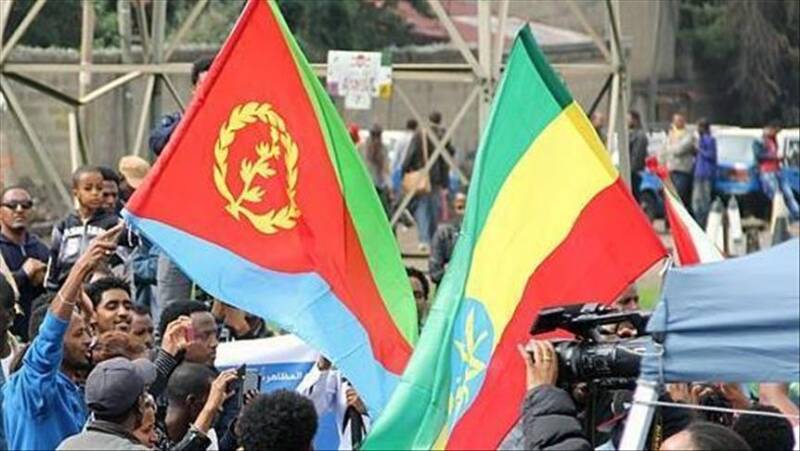By Merhawi Kubrom

President Isaias Afwerki of Eritrea and Prime Minister Abiy Ahmed of Ethiopia at the opening ceremony of the Eritrean Embassy in Addis Ababa in July 2018 (1)
“You can take the person out of the ghetto, but you cannot take the ghetto out of the person” aptly illustrates the complex and enduring relationship between Eritrea and Ethiopia. This metaphor highlights how deep-seated historical, cultural, and psychological ties can persist despite changes in political status and geographical boundaries.
Eritrea's experience with Ethiopia, spanning from colonization to independence and beyond, showcases how deeply ingrained identities and experiences can shape the collective psyche and interactions between nations. Eritrea and Ethiopia share a long, intertwined history. Before the Italian colonization of Eritrea and after World War II, Eritrea was federated with Ethiopia in 1952 and later annexed as a province in 1962, leading to a protracted struggle for independence. Eritrea's independence in 1991, following a 30-year war, marked the official separation of the two nations.

The flags of Eritrea and Ethiopia representing the two nations (2)
However, the legacy of this dark history continues to influence their relationship. Much like the metaphor suggests, the collective memory and trauma from decades of conflict cannot be easily erased. The Eritrean psyche is deeply marked by Ethiopian military war crimes and civil crimes, the struggle for independence, and the desire to protect its people and assert a distinct national identity. Similarly, Ethiopia's perspective on Eritrea is colored by one-sided historical claims and a sense of ownership, a feeling that Eritrea's geography, history, and future belong to Ethiopia, and a sense of loss of ownership. These ingrained attitudes shape current political and social interactions, much like the lingering impact of a person's upbringing in a challenging environment.
The Bible offers insights that resonate with this metaphor. Proverbs 22:6 states, “Train up a child in the way he should go; even when he is old, he will not depart from it.” This suggests that early experiences and teachings have a lasting impact on individuals. Applying this to nations, the historical and cultural “experience” of Eritrea and Ethiopia influences their enduring relationship. The deep-seated memories of conflict, a sense of ownership, and divorce that was never a union are akin to the foundational experiences that shape Eritreans' and Ethiopians' character and world view.
The enduring impact of historical trauma can be profound. Nations, much like individuals, can experience collective trauma that affects their national identity and interactions. Eritrea's struggle for recognition and the psychological scars from prolonged conflict with Ethiopia have fostered a sense of resilience but also mistrust. Similarly, Ethiopia's historical role as a regional power and its experience of losing the war against Eritrean fighters for independence contribute to its national psyche.
Post-traumatic stress disorder (PTSD) and collective memory play crucial roles in shaping the interactions between Eritrea and Ethiopia. The cyclical nature of trauma, where past wounds influence present behavior, is evident in their recurring tensions. Just as individuals with PTSD might react strongly to reminders of their trauma, nations can respond defensively to perceived threats or historical grievances, perpetuating a cycle of conflict and suspicion. Healing this complex relationship requires acknowledging and addressing these deep-seated issues. Just as in mental health therapy, where understanding and working through past trauma is crucial for recovery, Eritrea and Ethiopia must confront their shared history to move forward and respect their nationhood. They must see eye to eye as two different nations, but neighbors that can choose to lend helping hands to each other. Initiatives that foster dialogue, mutual understanding, and cooperation are essential.
The metaphor “You can take the person out of the ghetto, but you cannot take the ghetto out of the person” encapsulates the enduring impact of historical and cultural experiences on Eritrea and Ethiopia's relationship. Despite the reality and truth of being two independent nations, the deep-seated memories and traumas continue to shape their current and future interactions. By acknowledging these influences and working towards healing, both nations can aspire to a future marked by cooperation and mutual respect, and their leaders need to call for reconciliation and peace. Understanding and addressing the psychological dimensions of their shared history is crucial for building a harmonious and collaborative future for both nations.
Kommentar hinzufügen
Kommentare